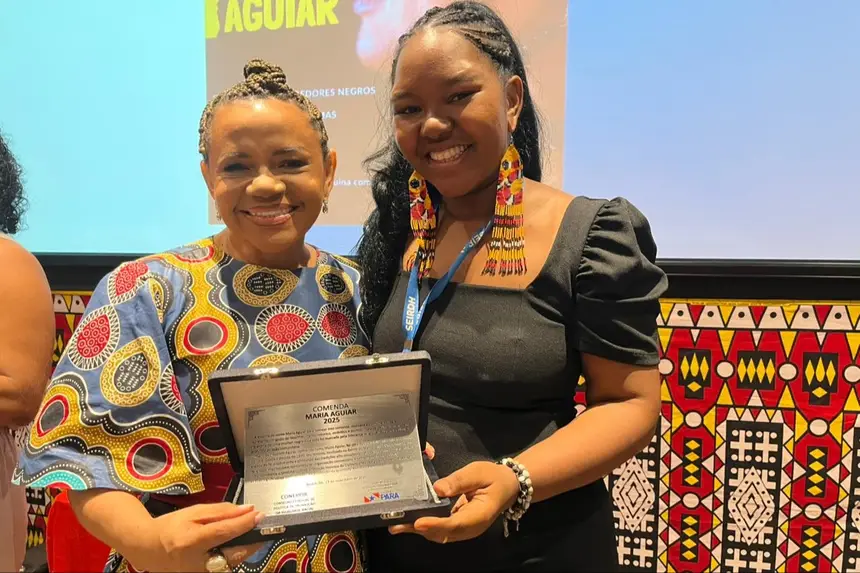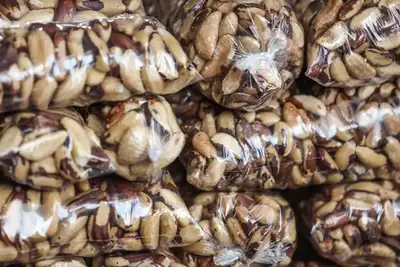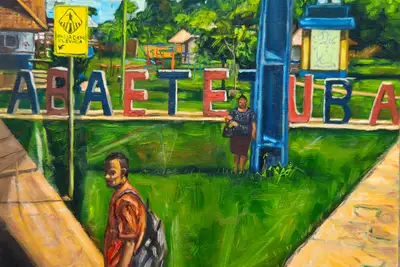On Black Consciousness Day, Pará consolidates a cycle of achievements for quilombola communities
This week, the government announced packages of rights, education, health, land titling, and permanent policies that strengthen the fight for racial justice in the State

On this Thursday (20), National Black Consciousness Day, the government of Pará commemorates the date with strategic actions aimed at strengthening quilombola communities and advancing racial equality policies. The date celebrates the struggle, resistance, and memory of Zumbi dos Palmares, leader of the largest quilombo in Brazil's history and a symbol of black resistance against slavery.
In this year of 2025, initiatives carried out through the State Secretariat for Racial Equality and Human Rights (Seirdh) have consolidated public policies, expanded rights, and reinforced social participation.
For the head of Seirdh, Edilza Fontes, Black Consciousness Day represents a historical recognition and a permanent commitment to reparation and equality. "The choice of November 20 as Black Consciousness Day is the result of the struggle of the black movement, which claimed Zumbi dos Palmares as a symbol of resistance to slavery. Recognizing this date means admitting that Brazilian society has been profoundly discriminatory and that we still have much to repair," she stated.
The secretary also highlighted the institutional role of Seirdh in combating racism and formulating public policies. "The creation of Seirdh in 2023 is a state advancement in recognizing that racism exists and needs to be fought with concrete actions. Today we work with quilombolas, land demarcation, literacy, reception, Racial Equality and Quilombola Councils, in addition to combating analogous to slavery work. It is a commitment to a fairer and more equal society," she added.
Achievements of quilombola communities

Last Monday (17), the government of Pará, through Seirdh and in partnership with various state secretariats, held a historic ceremony marked by deliveries in the areas of housing, education, health, land regularization, culture, and social inclusion. The event brought together more than 200 quilombolas from different regions, as well as state and federal government authorities.
Governor Helder Barbalho and Lieutenant Governor Hana Ghassan presented a set of measures that reinforce the commitment to racial justice and rights guarantees in quilombola territories. Pará is the state that titles the most quilombola communities in the country, consolidating a permanent agenda for territorial strengthening and social protection.
The head of the state executive emphasized the historical reach of the deliveries and the direct impact on the lives of the communities.
“We have reached 57 titles for quilombola communities, the largest delivery in all of Brazil, ensuring rights, ensuring peace, and, above all, allowing this people, with their roots and culture, to live in harmony in their territory. In addition, we sent to the Legislative Assembly a set of laws that structure the quilombola and traditional extractive policy of our state, so that these rights become state policies, ensuring a safe, peaceful environment with guaranteed rights,” he stated.
Among the measures taken are:
• Sending to Alepa the Bill that reserves spots in state public competitions for black candidates (10%), indigenous (5%), and quilombolas (5%).
• Implementation of the New Quilombola High School and conducting regional consultations to regulate Quilombola School Education in Pará.
• Construction of two quilombola high schools in Oriximiná and Salvaterra.
• Signing of the Uepa Student Assistance Law, guaranteeing scholarships for indigenous and quilombola students.
• Launch of the state quilombola health program, with itinerant care, mental health, and priority in regulation.
• Delivery of 50 checks from the Sua Casa program to quilombola families in Abaetetuba.
• Official delivery of Collective Land Titles to 11 quilombola communities.
• Cultural and economic promotion, including the transfer of R$ 100,000 to Malungu to strengthen cultural manifestations and quilombola games.
• Promotion of afro-tourism in the Visit Pará app.
• Donation of a vehicle and allocation of property to Malungu.
• Guarantee of high-quality internet in the territories.
• Support from Semas in filling out Sicar/PA, facilitating quilombola CAR.
• Advances in infrastructure, with resources allocated to Civil Defense and Fire Department for water supply systems.
Maria Aguiar Commendation

Also on Monday (17), Seirdh delivered the Maria Aguiar Commendation, an honor that celebrates women who stand out in the fight for racial equity, strengthening Afro-Amazonian traditions, and defending rights. A total of 20 women were honored, including educators, community leaders, artists, and human rights defenders.
Year marked by historical advances
Throughout 2025, the government of Pará has carried out a continuous agenda to strengthen racial equality policies and guarantee the rights of quilombola communities. In October, for example, Seirdh inaugurated the members of the first State Council for Policies for Quilombola Communities, created by Decree No. 4,372/2024.
Composed of 40 councilors — representatives of civil society and public power — the council acts by proposing, supervising, and monitoring policies for the territories. The creation of the Council is considered a historical milestone, as it is the first in Brazil, ensuring direct participation of communities in the formulation of public policies.
The mobilization of Pará in the Conferences for the Promotion of Racial Equality began even at the municipal stages, which had direct support from Seirdh. The Secretariat's teams, through the Directorate of Racial Equality, accompanied the municipalities, offered technical guidance, and encouraged the holding of meetings. In total, 27 municipal conferences were promoted with the support of the state government.
Based on local discussions, Seirdh held the 5th State Conference for the Promotion of Racial Equality on August 20 and 21 in Belém, bringing together representatives of civil society, specialists, and quilombola and black leaders. The meeting consolidated priority proposals and defined the delegates who would represent Pará at the national stage.
The process concluded with the state's participation in the 5th National Conference for the Promotion of Racial Equality in Brasília, where Pará brought 63 delegates and presented 15 proposals built collectively.

The actions carried out in 2025 consolidate a cycle of transformation of policies for quilombolas and for the promotion of racial equality in Pará. With investments, social participation, and long-term policies, the state government reaffirms its commitment to historical reparation, inclusion, and dignity for black and traditional populations.
Text: Rebeca Costa (Ascom Seirdh)











